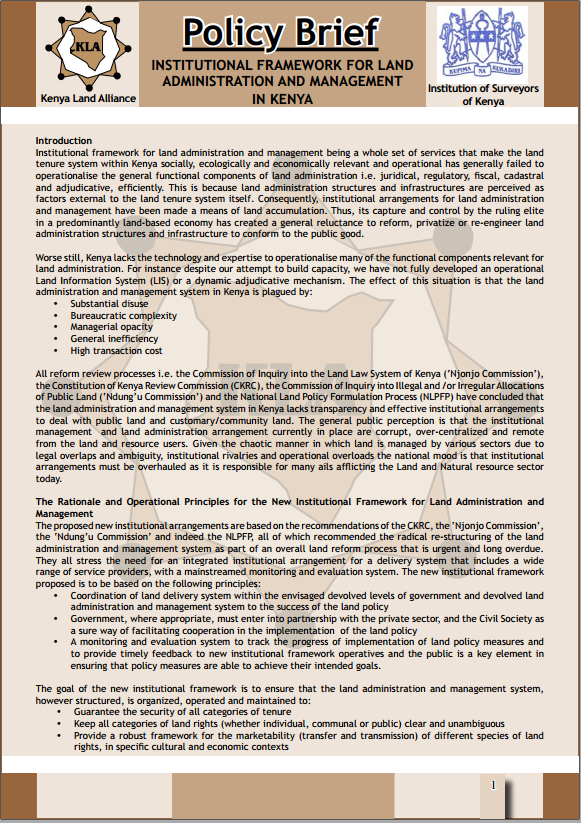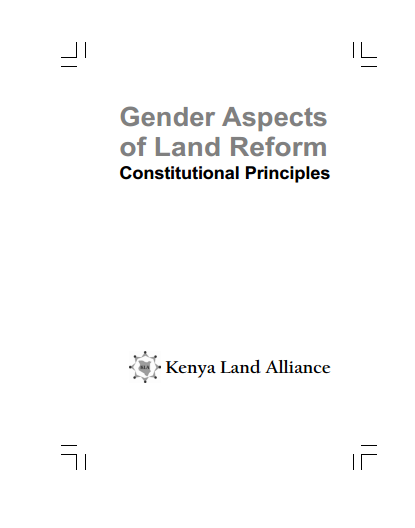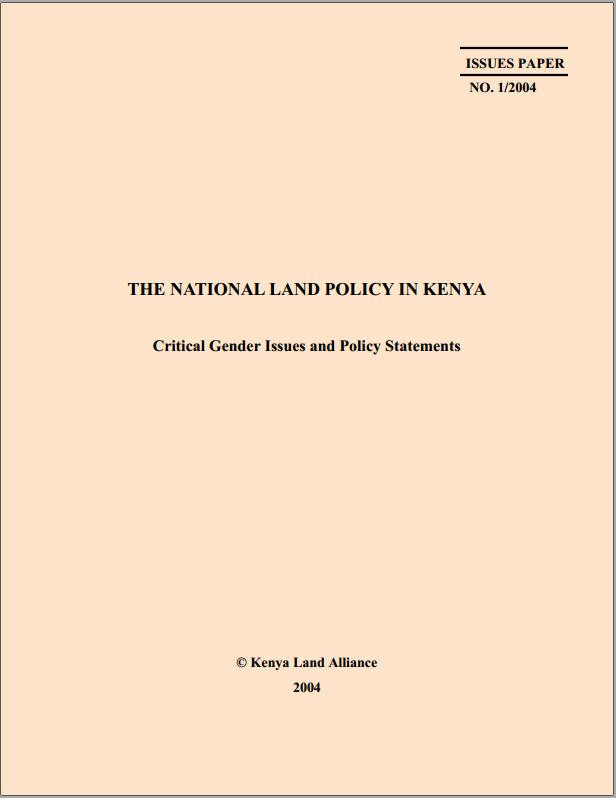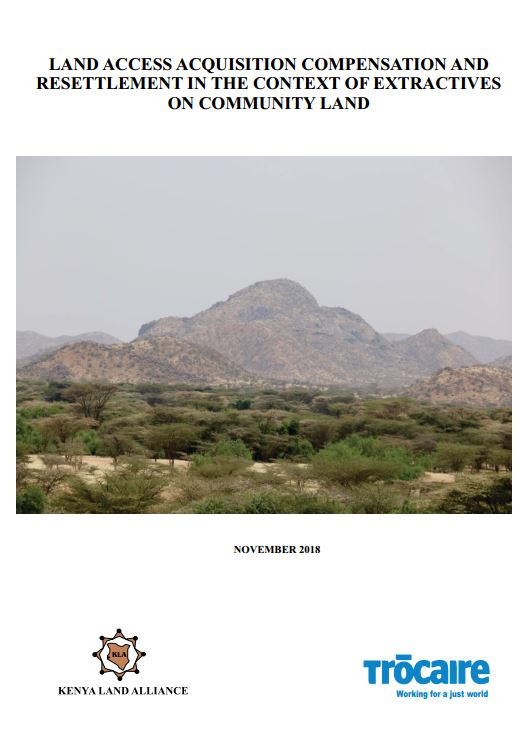Institutional Framework for Land Administration and Management in Kenya
Institutional framework for land administration and management being a whole set of services that make the land tenure system within Kenya socially, ecologically and economically relevant and operational has generally failed to operationalise the general functional components of land administration i.e. juridical, regulatory, fiscal, cadastral and adjudicative, efficiently. This is because land administration structures and infrastructures are perceived as factors external to the land tenure system itself.










